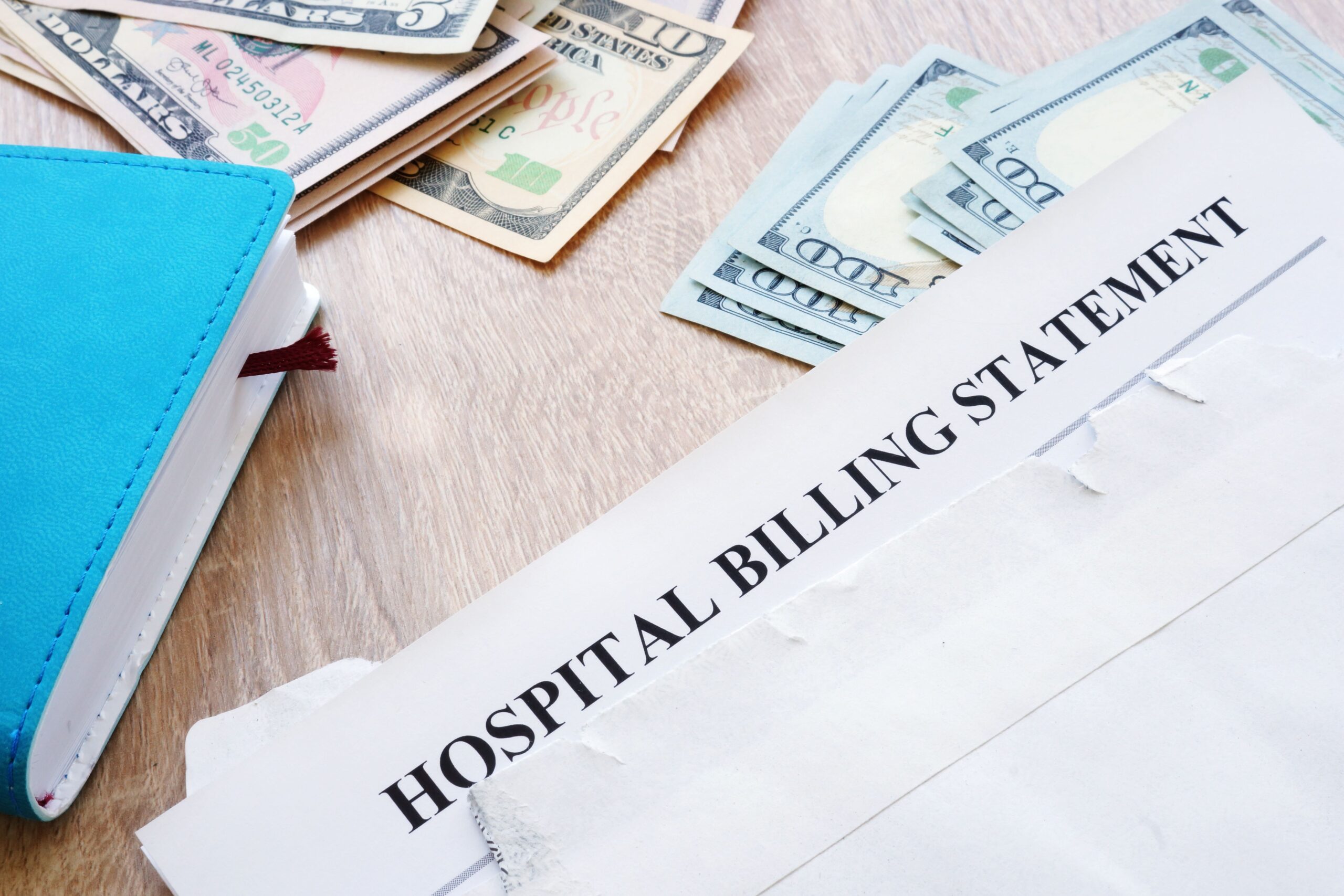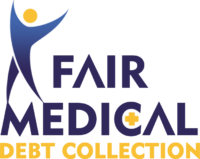
Find Healthcare Collection Companies
Helping Healthcare Businesses Collect Outstanding Payments
The Comprehensive Buyer’s Guide Connecting With Expert in Healthcare Debt Recovery
The healthcare industry is an indispensable part of society, providing crucial services to individuals in need. However, running a successful healthcare practice requires more than just providing top-notch medical services. It also entails dealing with financial matters, such as collecting unpaid medical bills, which can be a significant challenge.
That’s where medical debt collection agencies, like Fair Debt Medical Collection, come into play. These agencies specialize in helping healthcare practices recover their unpaid debts. This buyer’s guide aims to provide healthcare professionals with an in-depth understanding of medical debt collection for various healthcare practices, including dental offices, chiropractic clinics, and optometry centers.
Understanding Debt Collection for Healthcare Practices
Debt collection for healthcare practices is a crucial element of the revenue cycle management process in healthcare. It involves the systematic pursuit of payments for medical services provided but unpaid by patients. This process becomes necessary when patients do not pay their bills promptly, resulting in delinquent accounts.
Debt collection in healthcare can be complex due to various factors such as insurance coverage issues, misunderstanding of billing information, financial hardship, or simple neglect from the patients. As a result, many healthcare practices choose to outsource this task to top rated specialized debt collection agencies, freeing up their time and resources to focus on patient care.

Necessity of Medical Debt Collection
Without a robust debt collection process, healthcare practices face significant financial risks, impacting their operations, growth, and ability to provide quality patient care. The American Medical Association estimated in 2020 that physicians, on average, spend 14% of their total revenue on the billing and insurance-related processes. Effective debt collection strategies can minimize these costs, streamline revenue flow, and maintain a positive cash flow.
For Healthcare Providers
Are unpaid bills affecting your operations? Transfer your outstanding medical debts to us, and let our network of professional collection agencies handle the rest. With Fair Medical Debt Collection, you can rest assured that your reputation remains untarnished while you receive a fair return on your accounts.
For Collection Agencies
Looking to expand your portfolio with medical debts? Partner with us to get access to a steady stream of ethically procured medical debt. We provide clear pricing structures and ensure a smooth transaction process.
How Does Healthcare Debt Collection Work?
The debt collection process typically begins with the healthcare provider sending out bills to the patients. If a payment is not received within a specific timeframe, usually 30 to 60 days, the account may be classified as delinquent.
At this stage, the healthcare practice can opt to pass the delinquent account to a medical debt collection agency. These agencies follow a set of standard procedures to collect the debt, which include:
- Initial Contact: The agency contacts the debtor (patient), informing them about the outstanding debt and seeking payment. This contact usually happens via letters, emails, or phone calls.
- Payment Arrangement: If the debtor is unable to pay the full amount immediately, the agency may set up a payment plan that suits the debtor’s financial situation.
- Legal Action: If the debtor still fails to pay, the agency might pursue legal action as a last resort, depending on the size of the debt and the specific circumstances.
Medical Debt Collection for Different Healthcare Industries
1. Dentistry
Dental practices often face significant challenges in collecting debts. From complex insurance matters to high out-of-pocket costs for procedures, the reasons for non-payment can vary. Here, a debt collection agency for dentists can provide customized services, considering each patient’s unique circumstances and handling sensitive conversations professionally. The standard collection process involves:
- Pre-collection services: Reminder notices are sent to patients with outstanding balances, often including a friendly note that their bill is due.
- Primary collection services: If no payment is received, the account is moved to the primary collection phase. Here, more intensive tactics like letters, emails, and phone calls are used.
- Secondary collection services: For accounts resistant to the initial collection efforts, secondary services such as credit reporting, legal action, and asset searches might be used.
2. Chiropractic Practices
Chiropractic practices often deal with both insured and uninsured patients, adding another layer of complexity to their billing process. Therefore, a specialized debt collection approach is necessary. A chiropractic-focused debt collection agency should:
- Understand insurance coverage for chiropractic services,
- Know how to negotiate payment plans for uninsured patients, and
- Be familiar with state regulations related to chiropractic billing.
3. Optometry
Optometry practices often face billing challenges due to the confusion around insurance coverage for vision care. A debt collection agency working with optometrists should have a detailed understanding of vision insurance, medical insurance, and the specifics of optometry billing and coding.

4. Solo Practices
Solo practitioners, whether primary care physicians, specialists, or therapists, usually have a smaller patient base and tighter resources. Therefore, they often feel the impact of unpaid bills more acutely. The standard collection process begins with:
- Patient billing: After a patient’s visit, they’re billed for the services. The patient usually has 30-60 days to clear the invoice.
- Reminder notices: If the bill remains unpaid, reminder notices are sent out. These gentle reminders often facilitate payment without damaging the patient-practitioner relationship.
- Debt collection agency involvement: If the patient still doesn’t pay, the practitioner might engage a debt collection agency to take over the process.
5. Primary Care Physicians
Primary care practices deal with a broad range of health issues, and their patients often have varied insurance coverage. The collection process usually involves:
- Verification of insurance coverage: Understanding a patient’s coverage helps in estimating the patient’s liability, which can be communicated upfront.
- Billing the patient: For any amount not covered by insurance, the patient is billed directly.
- Engaging a collection agency: If the patient fails to pay the bill, the primary care practice may employ a collection agency to recover the debt.
6. Specialist Physicians (Cardiologists, Dermatologists, Psychiatrists)
Specialist physicians often provide high-cost services, and their patients may face substantial out-of-pocket expenses. Debt collection in these practices typically involves:
- Advance payment arrangements: For high-cost procedures, patients might be asked to agree to a payment plan in advance.
- Billing: After services are provided, the patient is billed for any amount not covered by the agreed-upon plan or insurance.
- Collection agency engagement: If the patient fails to adhere to the payment plan or settle their bill, the practice may resort to a collection agency.
7. Hospitals
Hospitals cater to a vast number of patients and have a diverse range of services, making their billing and collection processes more complex. The process often includes:
- Patient financial counseling: Given the high costs associated with hospital care, financial counseling is often provided to help patients understand their financial obligations and set up payment plans.
- Insurance billing: Hospitals bill insurance providers directly for covered services.
- Patient billing: Patients are billed for any remaining amounts, including co-pays and non-covered services.
- Debt collection agency involvement: If the patient doesn’t pay the remaining amount, the hospital may transfer the debt to a collection agency.
In each of these scenarios, the goal of the debt collection process is to recover the unpaid bills while maintaining a positive relationship with the patient. It’s crucial for debt collection agencies to approach this task with professionalism, empathy, and respect for patients’ rights, ensuring the reputation of the healthcare practice remains intact.
Selecting a Medical Debt Collection Agency
When choosing a debt collection agency, consider factors like:
- Industry expertise: The agency should have a proven track record in collecting debts in your specific healthcare sector.
- Reputation: Look for agencies that maintain high ethical standards and comply with laws like the Fair Debt Collection Practices Act.
- Fees and Contingency Rates: Agencies typically work on a contingency basis, taking a percentage of the collected debt as their fee. Compare rates and ensure there are no hidden costs.
- Reporting and Transparency: The agency should provide regular updates about their collection efforts and success rates.

Partnering with Fair Debt Medical Collection
Fair Debt Medical Collection partners offer a suite of collection services tailored to the needs of healthcare practices. With our extensive experience in the medical industry, we handle each case with the utmost sensitivity, adhering to the highest ethical and legal standards.
Our partner’s approach is based on respect for the patient and understanding their unique circumstances, ensuring we maintain your practice’s reputation while successfully recovering your outstanding debts. The rates are competitive and transparent, and the client portal allows you to monitor our progress in real-time.
Legal and Ethical Considerations
Before partnering with a debt collection agency, healthcare practices should ensure that the agency adheres to the legal and ethical standards set by government bodies. The Fair Debt Collection Practices Act (FDCPA) provides guidelines that protect consumers from abusive, unfair, or deceptive practices by debt collectors. Any violation of these guidelines can lead to legal complications and harm the reputation of the healthcare practice.
A good medical debt collection agency respects patients’ rights, understanding that while it’s essential to recover unpaid bills, it’s equally crucial to treat patients fairly and empathetically. A patient-friendly approach can often lead to better results, as it helps to maintain patient relationships and upholds the healthcare practice’s reputation.
Technology in Debt Collection
Technology has significantly influenced the process of medical debt collection. Innovative tools and software can automate many steps of the process, making it more efficient and effective. Key technologies in debt collection include:
- Automated Dialers: These systems can make numerous calls simultaneously, leaving messages or connecting the call to an agent if the debtor picks up.
- Data Analytics: Data analytics can help prioritize collection efforts by identifying patients most likely to pay based on their past behavior, financial situation, and other factors.
- Digital Payment Platforms: Offering a variety of payment options can increase the likelihood of payment, and digital platforms make it easy for patients to pay their debts online.
Before partnering with an agency, consider their use of technology. More advanced tools often lead to better collection rates and more transparent reporting.
Early-Out and Pre-Collection Services
Some medical debt collection agencies offer early-out services or pre-collection services. These services involve contacting patients early in the billing cycle, often before a debt is officially delinquent. The goal is to address any issues that might prevent payment, such as confusing billing statements or insurance disputes.
Early-out services can be an effective way to reduce the number of accounts that become seriously delinquent. They also provide a less confrontational approach, as the conversation is about helping the patient meet their obligations rather than demanding payment.

Customized Debt Collection Services
Different healthcare sectors often require customized debt collection services due to their unique billing and insurance scenarios. For instance, mental health practices may deal with different insurance coverage issues than optometry practices. A competent medical debt collection agency should have the flexibility and expertise to tailor their approach based on the needs of the healthcare practice.
At Fair Debt Medical Collection, we understand that each healthcare practice is unique. We offer a range of customizable services, including early-out services, insurance resolution, primary and secondary collections, and legal collections. Our goal is to provide a comprehensive solution for your practice’s specific needs.
The Importance of Patient Education
Educating patients about their financial obligations is a proactive approach to medical debt collection. Many patients don’t understand their insurance coverage or the billing process, leading to confusion and non-payment.
A medical debt collection agency can play a vital role in patient education. By clearly explaining the billing process, insurance claims, and payment options, the agency can help patients understand their responsibilities, increasing the likelihood of timely payments.
Learn More About Healthcare Debt Collection
The process of medical debt collection is vital to maintaining the financial health of your healthcare practice. By choosing a specialized agency like Fair Debt Medical Collection, you can focus on providing exceptional healthcare services while we ensure your bills are paid promptly and professionally.
